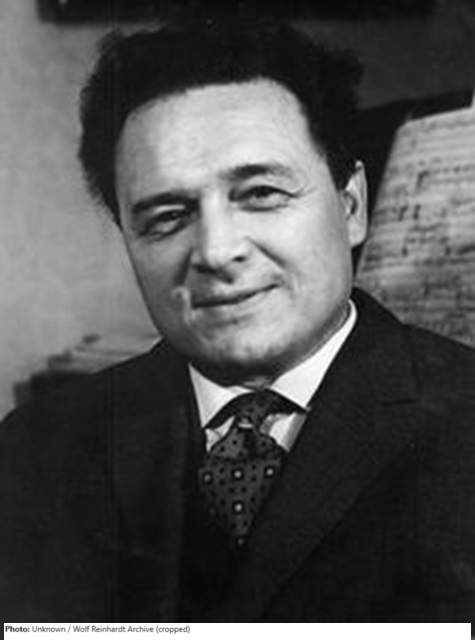Jan Kapr

Biographical information
| Roles | Competed in Olympic Games |
|---|---|
| Sex | Male |
| Full name | Jan•Kapr |
| Used name | Jan•Kapr |
| Born | 12 March 1914 in Praha (Prague), Hlavní město Praha (CZE) |
| Died | 29 April 1988 (aged 74 years 1 month 17 days) in Praha (Prague), Hlavní město Praha (CZE) |
| NOC |  Czechoslovakia Czechoslovakia |
Biography
Czechoslovak composer Jan Kapr suffered a severe injury during his youth, which prevented him from playing an instrument himself. Nevertheless, he graduated from the Praha Conservatory from Jaroslav Křička’s master class. He was music editor at Radio Praha until the end of World War II. After that, he was promoted to chief editor of a national music publisher and professor for compositions in Brno. His focus was on composing, including political mass songs. As a loyal member of the Communist Party he received the Stalin Award in 1951. However, he returned the award, protesting against the 1968 Soviet Occupation. Consequently, his works were not allowed to be performed in Czechoslovakia and his 8th Symphony, for instance, premiered on Bavarian radio. Jan Kapr was one of the few artists who was actively engaged in sports, particularly gymnastics. But the injury that he received during an exercise inhibited a sports career.
Kapr was an author of 10 symphonies. In the 1960s he became interested in avant-garde composition techniques, and started to investigate the articulating possibilities of the human voice on various instruments, combining electronic and acoustic sounds. His work Marathon Scherzo (in most sources called Marathon: scherzo symphonique), one of his earlier works composed in 1939, received an “Honorable Mention” in 1948. The length of the work is almost 13-minutes. It was first performed on the radio in March 1940 under Bohemian composer and conductor Otakar Jeremiáš. The composition, which contains a lot of 12-tone sequences, was compared with the neo-Classicism of Paul Hindemith.
The story underlying the work has been interpreted as the legend of the ancient marathon runner: with the initial wartime rhythm, the rhythmical section of the messenger running, and a festive fanfare, illustrating the arrival of the message of victory in Athina. The following silence reminds one of the messenger’s death, while another rhythmic “run” links the history to the modern athlete, and the final fanfare hails the winner at the finish. In the late 1950s, Kapr composed his 5th symphony with the subtitle Olympic. The titles of the movements show a similar programmatic scheme: I. The Honor of the Winner; II. Light of the Ages; III. Youth; IV. Calling the Nation.
Results
| Games | Discipline (Sport) / Event | NOC / Team | Pos | Medal | As | |
|---|---|---|---|---|---|---|
| 1948 Summer Olympics | Art Competitions |  TCH TCH |
Jan Kapr | |||
| Music, Compositions For Orchestra, Open (Olympic) |